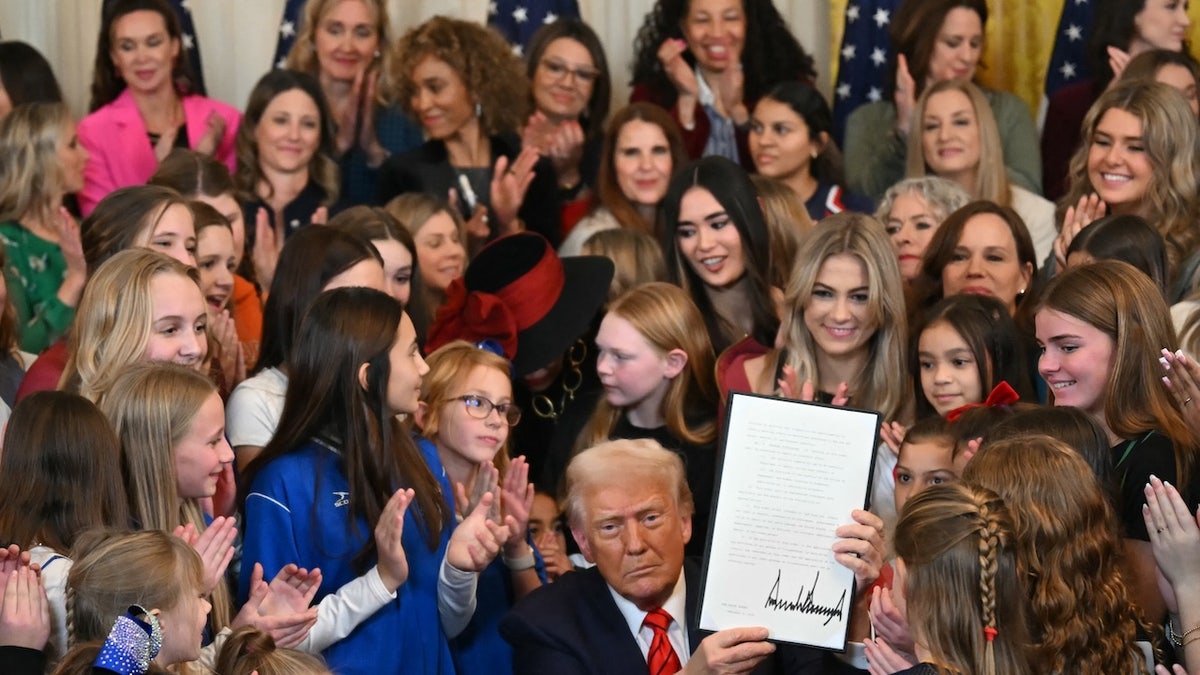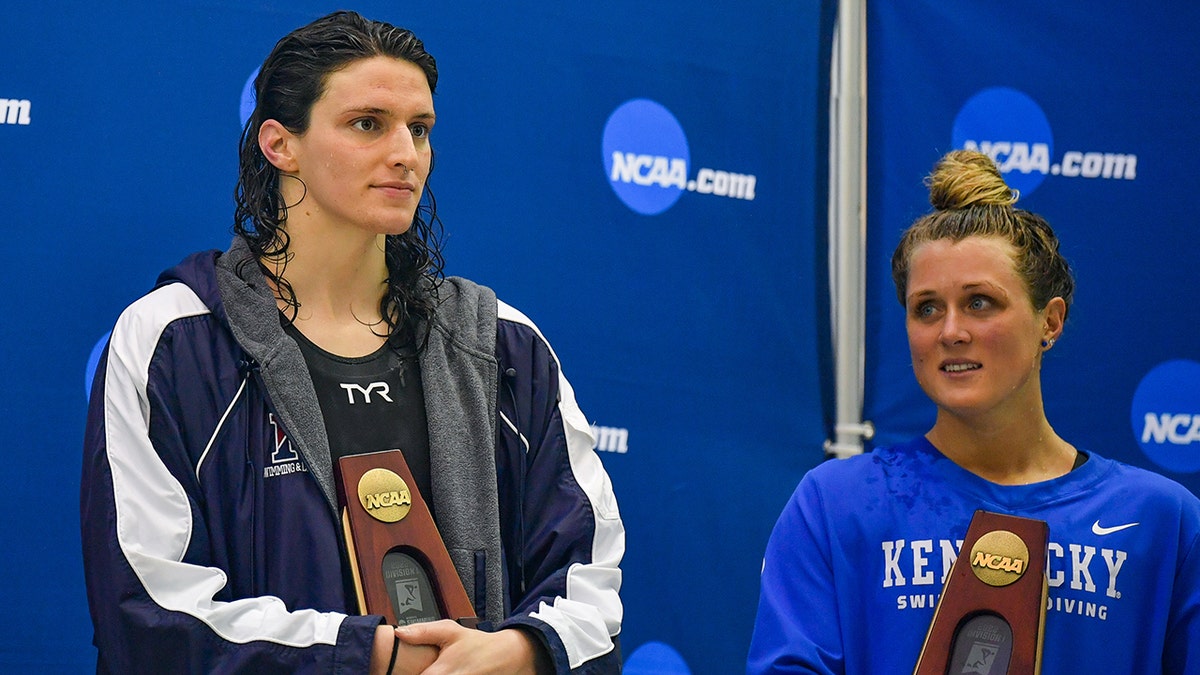

The executive order "Keeping Men Out of Women’s Sports" ensures that the next generation of female athletes has a fair opportunity to compete with the safety, privacy and equal opportunity they deserve.
I am grateful for President Donald Trump’s swift action in fulfilling his campaign promise to protect women’s sports. The clarity and decisiveness of this administration sends a strong message to women and girls across the country: We matter.
Women’s sports were created to celebrate and protect our unique physical attributes, allowing us to develop confidence, resilience, leadership and determination. Our category is separate from men’s – not because we are inferior, but because we are different. We have distinct physiological characteristics, such as lung capacity, height, limb proportions and heart size. These differences impact performance, especially in endurance sports where every breath counts.

President Donald Trump signs the No Men in Women's Sports executive order in the East Room of the White House on Feb. 5, 2025. (Andrew Caballero-Reynolds/AFP via Getty Images)
Additionally, female athletes face different risks, such as higher susceptibility to stress fractures, ACL tears, and the female athlete triad, which can lead to low energy availability, irregular menstrual cycles, and weakened bones. These conditions put women at greater risk for injuries, eating disorders, anxiety, depression and prolonged recovery times.
Competing against other women is already a demanding physical challenge – but at least it is a fair one. Ignoring male physical advantage contradicts science and common sense, violates the privacy of female athletes in locker rooms, and leads to preventable injuries.
I began swimming at 4 years old. After 18 years of grueling practices, strict nutrition plans, disciplined sleep schedules, physical rehabilitation and social sacrifices, I earned the opportunity to compete at the highest level.
During my senior year at the University of Kentucky, I was ranked third in the nation and was familiar with the swimmer ranked second. However, I had never heard of the swimmer ranked first – a rarity in elite competition, where top athletes usually know one another. After some research, I discovered that the top-ranked swimmer, Lia Thomas, had competed as Will Thomas the previous year on the men’s team, ranking 462nd. He was (and still is) a man.
I assumed the NCAA would recognize the unfairness of the situation, as my teammates and I did. I expected them to intervene to protect fairness and privacy in women’s sports. But instead, they did nothing. We endured the violating experience of being forced to share a locker room with Thomas and watched as he dominated the most impressive and accomplished female swimmers in the world by entire body lengths.
In the 200 freestyle, Thomas and I tied down to the hundredth of a second. Yet, the NCAA gave Thomas the trophy. When I asked why, an official told me they had been advised that Thomas needed to hold the trophy for photos. At that moment, it became painfully clear: the NCAA was willing to ignore, undermine, and betray female athletes to validate the feelings and identity of a man.

Lia Thomas and Riley Gaines after finishing tied in the 200 freestyle finals at the NCAA Swimming and Diving Championships on March 18, 2022, in Atlanta. (Rich von Biberstein/Icon Sportswire via Getty Images)
The actions of this administration offer long-overdue vindication for female athletes who have been sidelined and harassed for daring to defend themselves. This executive order provides hope for the next generation, reinforcing that fairness, safety and privacy in women’s sports must be protected. Momentum is growing.
In February 2025, the NCAA took initial steps toward restoring fairness by limiting competition in women’s sports to women. However, the Department of Education has identified loopholes in the policy, acknowledging that more work is needed. I urge the NCAA to recognize and uphold the achievements of female athletes and correct the injustices we have endured over the past few years.
Fighting to protect women’s sports hasn’t been easy. But courage begets courage and there is strength in numbers. Let us continue defending truth, common sense and the rights of women. The next generation of female athletes is depending on us.
